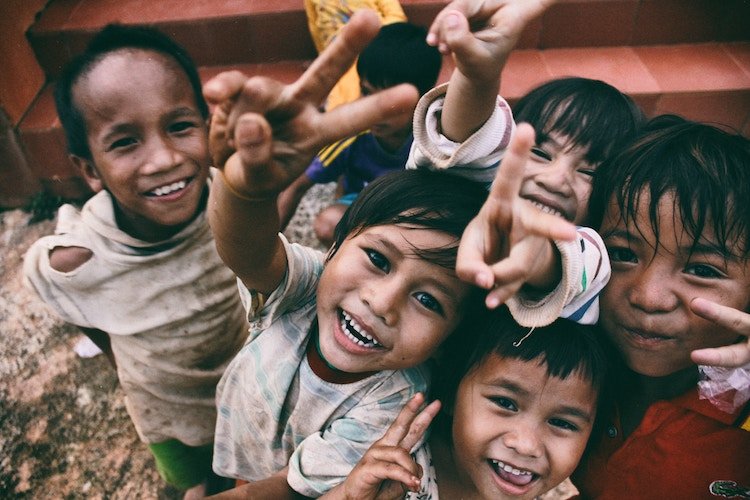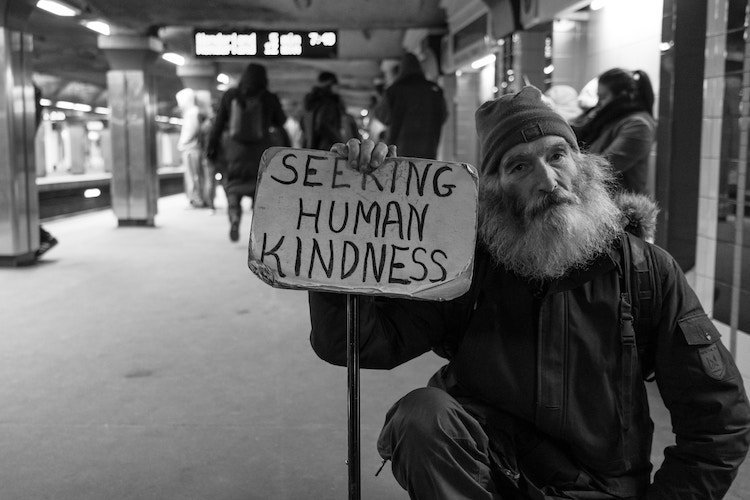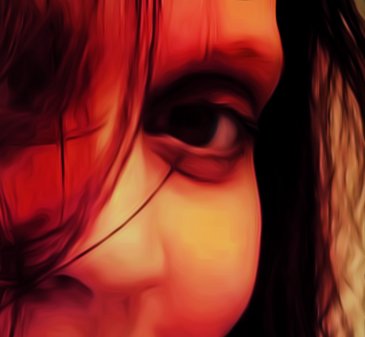Poverty, hunger, homelessness: human injustice is ever-present throughout the word, but what can we do about it? Sienna Saint-Cyr takes a looks at social justice...
You don't need to be a caped crusader to make a difference. Everyday heroes wear jeans and T-shirts; nurse's uniforms and fluorescent jackets on the roadside. Social justice is something we all can do and benefit from. In the United States, black mothers teach their sons to behave in specific, respectful ways to reduce suspicion, violence and aggression from police officers. White mothers do not.
In many parts of the world, girls do not have the same access to education as boys. Girls are married off while still children while their male counterparts are left alone to grow and mature. All over the world, some poor people barely survive the day while there are also billionaires in the same country who can’t imagine a life without gold.
Social justice does not mean taking away privileges of one group; it means raising up those who don’t have those same privileges. While it’s important to mark days such as Human Rights Day and World Day of Social Injustice and spend time, effort, and perhaps money to end social injustice, the reality is it's a process that requires attention every day.
What does social injustice mean?
Social injustice can manifest itself in multiple ways:
- Poverty
- Lack of healthcare
- Hunger
- Unsafe living environments
- Unsafe food
- Dirty water
- Laws that target a particular group because of their identity
- Stricter application of the law to one group over another

Social injustice: millions of kids live in poverty across the world
Social injustice keeps people from being healthy and happy. It violates the idea that all individuals have the right to life, liberty and the pursuit of happiness. Injustice impacts people based on their race, religion, sexuality, economic status, gender, ethnicity and much more.
Those who denounce social justice mistakenly believe marginalized groups will receive special treatment. For these people to do it, they loose something. They don’t realize that we are all only as strong as the weakest among us.
“Injustice anywhere is a threat to justice everywhere. Whatever affects one directly, affects all indirectly.” Martin Luther King Jr
What people need and deserve are the basics. In life, that includes the things that keep us all fed, housed and educated, while granting us equal access and treatment under the law. Once those basic needs are met, we humans can pursue life in a multitude of ways. Sometimes with results none of us can imagine. Inventors, peace-keepers, religious leaders, politicians, teachers, writers and so many other things.
All who contribute to society could rise out of the shadows of inequality and social injustice. We have no idea what we could accomplish if we grant everyone access to the same rights and basic needs.
What does social justice look like?
In a perfect world, everyone would see each other as equal and worthy regardless of their outward appearance or differing beliefs. Unfortunately, we don’t live in that world. We live in a messy place where everyone has an opinion and where everyone holds particular beliefs. Humans have to make our way through this world with choices based on those beliefs or their rejection of them.
Because of this, a strong social safety net is necessary to protect the weakest among us. This system, in whatever form it takes in governments around the world, helps grant access to healthcare and education, job training and employment. It helps reduce the economic inequalities that can hold generations of families back by requiring a livable minimum wage, additional educational resources for communities with the greatest need and access to the right jobs.
Homelessness: housing is a basic human right
Social justice means supporting communities and organizations. Support within those communities who raise up the concerns and problems of marginalized groups to make those in power aware of their need. To fight for equality and justice, and to promote the participation of individuals who may feel powerless and voiceless otherwise.
Why we all benefit from social justice
Raising up a group of people who have been ill-treated, neglected, and forgotten by society or government does not take anything away from those with greater privilege. It places us all on equal footing. Recognizing social injustice forces us to recognize our inherent biases and decide whether we will reject or embrace them. It forces us to look at what we have in relation to those with much less and realize that maybe we have too much.
"Recognizing social injustice forces us to recognize our inherent biases and decide whether we will reject or embrace them."
Admitting social injustice that we do not personally experience is a difficult, personal task, but once done, allows us to better answer the question, “What will I do about it?” It gives us the chance to check our biases at the door and treat people the way we would want to be treated.
Social justice for the victims of injustice?
Access to the basics and the ability to pursue a life of happiness – without the guarantee, of course – allows people to move beyond their circumstances and improve it. This results in less strain on government safety nets. People can worry less about how to make it through another day with enough food and water or avoid harassment and can focus on bigger things, bolder thoughts and new ideas.
When we allow all parts of our society to benefit equally, everyone contributes more to society as a whole. whether in business, legislatively, or simply by being a better person. If we’re poor, scared, or demoralized, our world becomes very narrow. When we are free from the strain of social injustice and inequality, the horizon becomes much broader and the opportunities greater. We all benefit. ●
happiness.com | The fine art of being: learn, practise, share
Are you a happiness.com member yet? Sign up free to:
■ enjoy our happiness magazine with practical life tips
■ share and support others in our happiness forum
■ self-develop with free online classes in our happiness Academy
Written by Sienna Saint-Cyr
 Sienna Saint-Cyr is an author, advocate, and the founder of SinCyr Publishing. She speaks at conventions, workshops, and for private gatherings on the importance of having a healthy body image, understanding enthusiastic consent, using sexuality to promote healing, navigating diverse or non-traditional relationships, having Complex PTSD, and more. Sienna loves sharing her journey of healing and finding happiness with her readers. Along with writing erotica and romance, Sienna speaks at conventions, workshops, and for private gatherings on such sex-positive topics as a healthy body image, using sexuality to promote healing, and navigating diverse or non-traditional relationships. She writes for several websites. Find out more.
Sienna Saint-Cyr is an author, advocate, and the founder of SinCyr Publishing. She speaks at conventions, workshops, and for private gatherings on the importance of having a healthy body image, understanding enthusiastic consent, using sexuality to promote healing, navigating diverse or non-traditional relationships, having Complex PTSD, and more. Sienna loves sharing her journey of healing and finding happiness with her readers. Along with writing erotica and romance, Sienna speaks at conventions, workshops, and for private gatherings on such sex-positive topics as a healthy body image, using sexuality to promote healing, and navigating diverse or non-traditional relationships. She writes for several websites. Find out more.

Join the conversation
You are posting as a guest. If you have an account, sign in now to post with your account.
There are no comments to display.